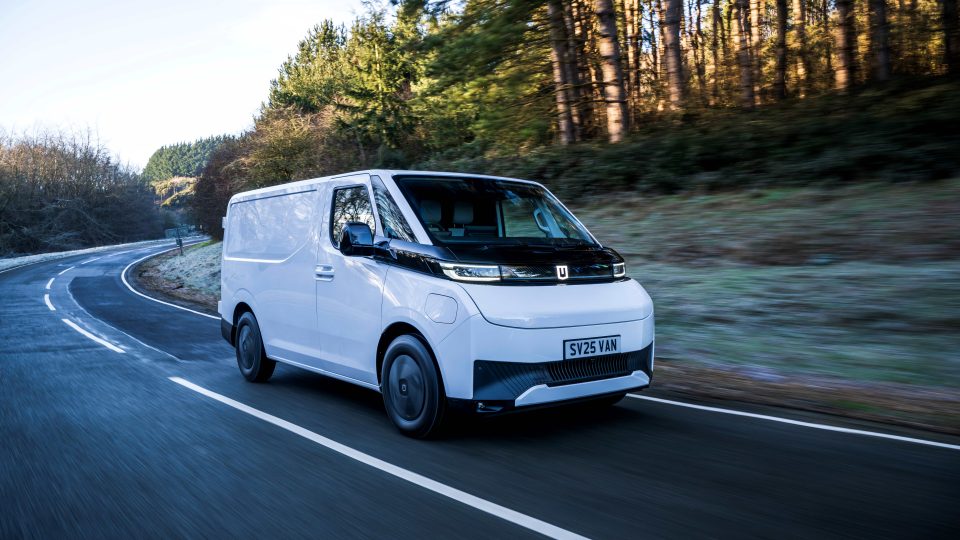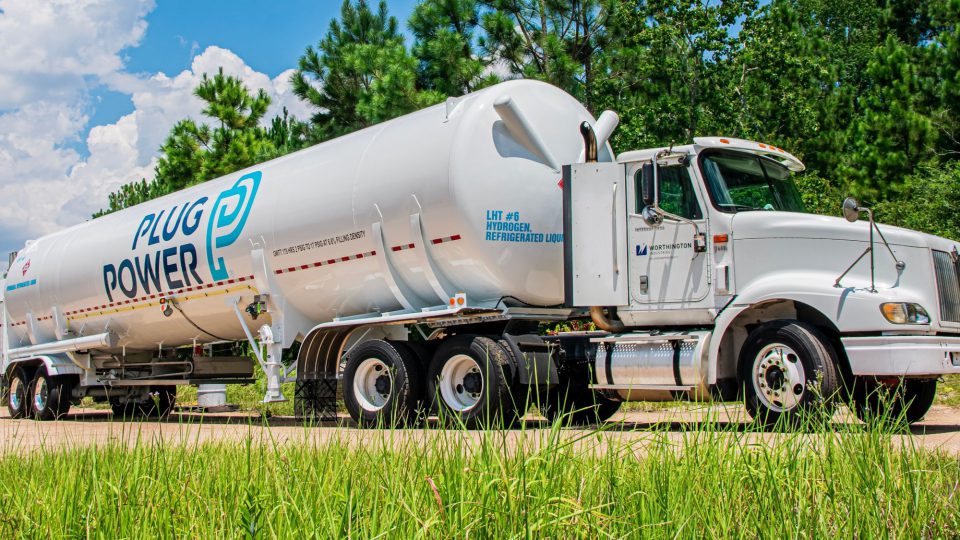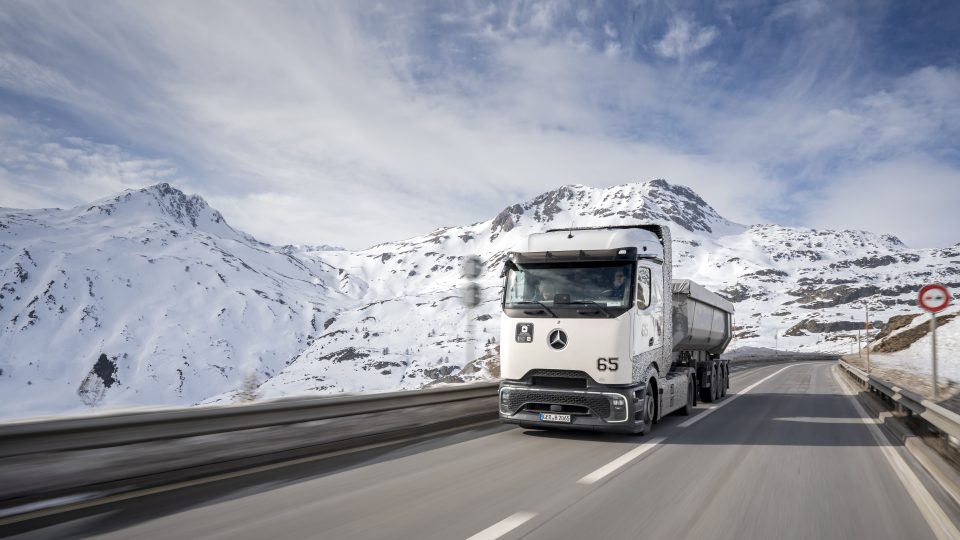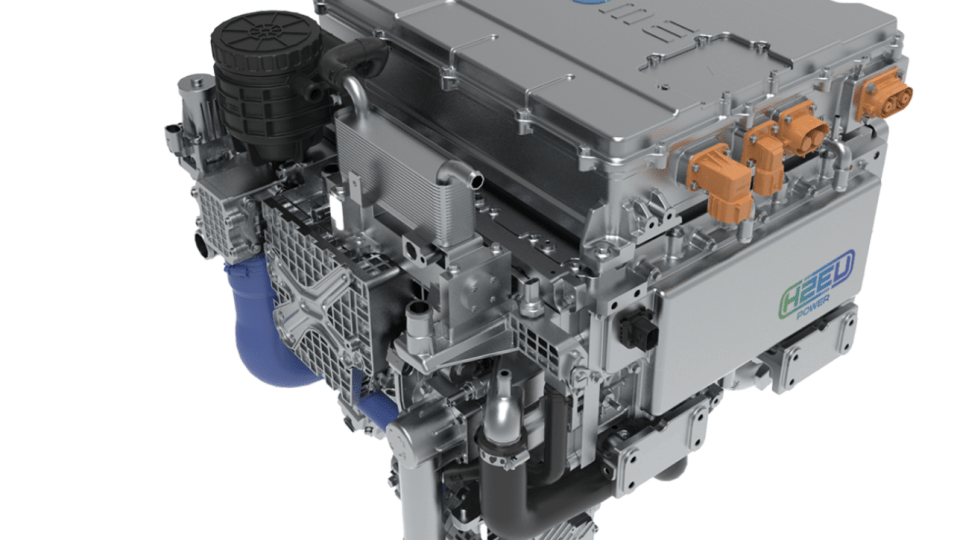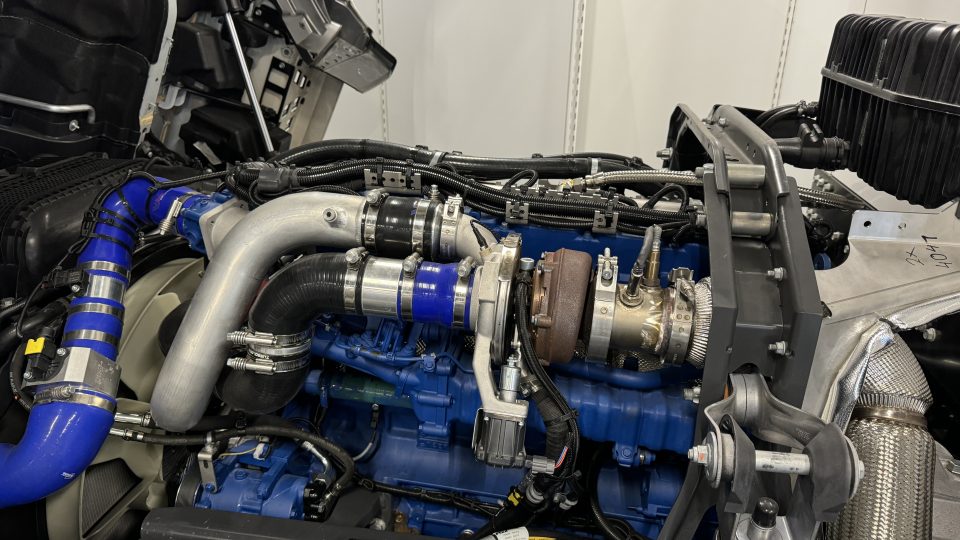Mercedes-Benz Special Trucks keeps on testing hydrogen internal combustion engines
Mercedes-Benz Special Trucks and partner Mörtlbauer Baumaschinen Vertriebs have jointly presented their two prototypes as part of the “WaVe” development project to research hydrogen combustion engines for special-purpose vehicles. Precisely, the Unimog test vehicle and crawler demonstrated their performance in driving and working operation on the Mörtlbauer factory premises in Fürstenzell, Bavaria.
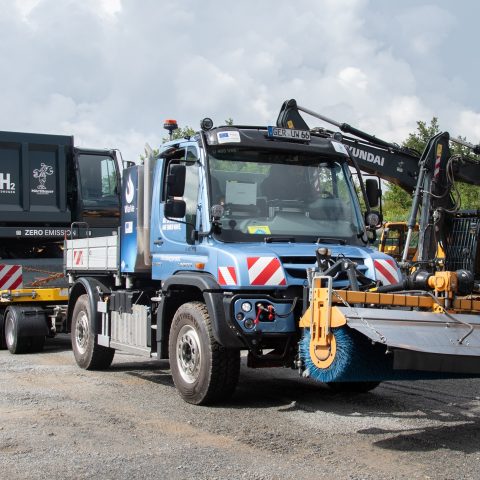
Mercedes-Benz Special Trucks and partner Mörtlbauer Baumaschinen Vertriebs have jointly presented their two prototypes as part of the “WaVe” development project to research hydrogen combustion engines for special-purpose vehicles. Precisely, the Unimog test vehicle and crawler demonstrated their performance in driving and working operation on the Mörtlbauer factory premises in Fürstenzell, Bavaria. The “WaVe” project, funded by Germany’s Federal Ministry for Economic Affairs and Climate Action, was jointly realized by 18 partners from industry and science and started in July 2021.
The specially converted Unimog U 430 implement carrier transported the crawler on a low loader to the event on the Mörtlbauer company premises. After a short drive on its own tracks, the developers then demonstrated the refueling process at a mobile hydrogen refueling station. The Unimog also demonstrated implement operation with a front-mounted sweeper from Schmidt.
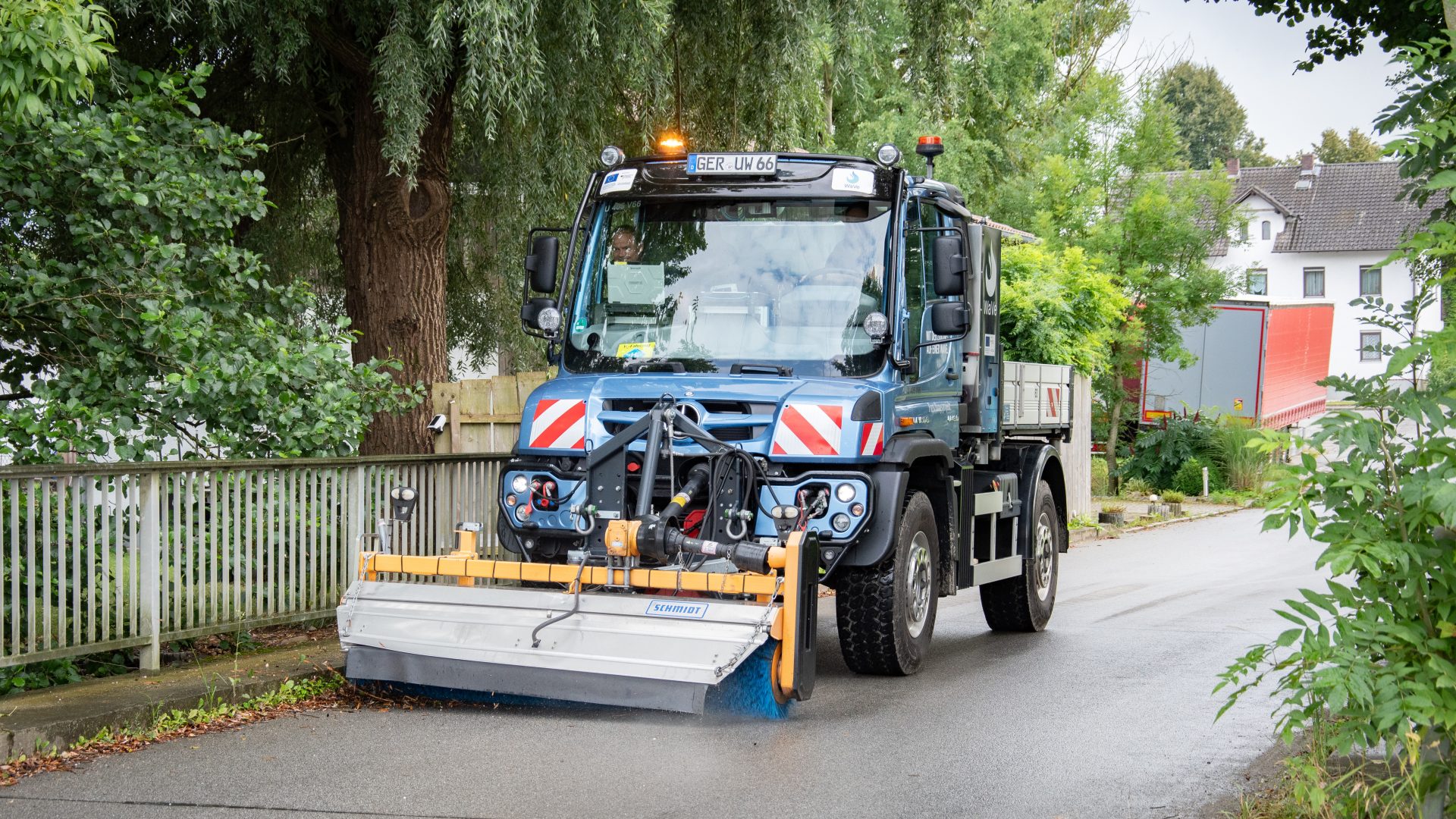
Hydrogen internal combustion engines for special trucks
With vehicles designed for this kind of work, the challenge is ensuring that the respective implement can be operated via a power take-off when driving. This usually requires sustained high power output. Using the two vehicle prototypes as an example, the WaVe project team demonstrated that the hydrogen combustion engine is particularly well-suited for such applications. The propulsion concept of hydrogen combustion ensures low emissions when driving and working while simultaneously ensuring a consistently high engine output.
Statements from the partners
Franziska Cusumano, Head of Mercedes-Benz Special Trucks, declared: “The final event held together with our partner Mörtlbauer on their premises once again demonstrated that both vehicles have reached a development status that we can be very satisfied with, even though this project has run for just three years. After numerous test deployments, emission measurements, and technical fine tuning, we are convinced that hydrogen combustion for work machines with high power requirements, both for driving and for powering auxiliary drives, is worthwhile, practical, and very low in emissions.”
Armin Mörtlbauer, Managing Director of Mörtlbauer Baumaschinen Vertriebs, added: “The fact that our crawler and the Mercedes-Benz Special Trucks Unimog can be easily refueled with gaseous hydrogen and that these vehicles also work reliably when using implements is the result of the outstanding cooperation in this research partnership. We have researched and understood this technology. We now have the corresponding experience and data. However, to apply these in series production, we have to go even further on this path. If the government and society choose to follow the path toward hydrogen combustion engines, we are ready to go.”





